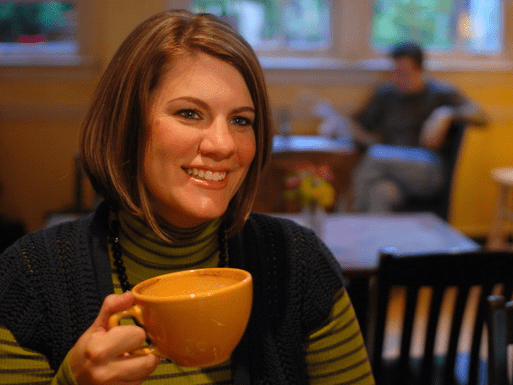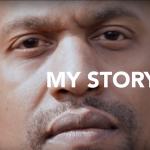The sudden death of popular Christian blogger Rachel Held Evans at age 37 has shocked the English speaking Church online.
Rachel was a mother, wife, author, and our sister in Christ.
Earth has lost a strong voice.
Heaven has gained a daughter of the King.
Rachel’s death at such a young age reminds us all that we cannot assume we will live on Earth for ever. Are we ready to meet our Lord as she now has?
We grieve for her young family, and we feel the gap she leaves online. We grieve, but we do so with hope. As a believer in the physical resurrection of Jesus I am confident that she is with Jesus right now, awaiting his return.
Rachel the EXvangelical
Perhaps my favourite Rachel Held Evans quote is one I only read after writing the first draft of this article. It is so important that I simply had to include it in an update, and it was written when Rachel decided to no longer try to cling onto the label “evangelical”:
Finally, you can take the girl out of evangelicalism, but you can never take evangelicalism out of the girl. And that’s fine by me.
I will forever be grateful for all the beautiful gifts evangelicalism gave me—a high esteem for and knowledge of Scripture, a heart for activism, and a deeply personal experience and expression of faith. It was, after all, evangelicals who baptized me, evangelicals who taught me to read and pray and cook. It was evangelicals who first called me a Christian, evangelicals who first told me I was beloved by God. And it was evangelicals (my parents) who let me sob in their arms yesterday, evangelicals who risked their reputations to reach out in peace last week.
Evangelicalism has been and always will be home. I suspect a part of me will always miss it.
But there’s something strangely liberating about standing in the middle of this scorched earth terrain with the resolution to stop fighting, the resolution to give up. I am reminded of the one thing all we Christians have in common, whether we’re Evangelical, Roman Catholic, Pentecostal, Presbyterian, Greek Orthodox, Seventh-Day Adventist, Anabaptist, Quaker, or something in between: We are Resurrection people.
Our God is in the business of bringing dead things back to life, so if we want in on God’s business, we better prepare to follow God to all the rock-bottom, scorched-earth, dead-on-arrival corners of this world—including those in our own hearts— because that’s where God works, that’s where God gardens. There’s no ladder to holiness to climb, no self-improvement plan to follow. It’s just death and resurrection, over and over again, day after day, as God reaches down into our deepest graves and with the same power that raised Jesus from the dead wrests us from our pride, our apathy, our fear, our prejudice, our anger, our hurt, and our despair.
Most days I don’t know which is harder for me to believe: that God reanimated the brain functions of a man three days dead, or that God can bring back to life all the beautiful things we have killed. Both seem pretty unlikely to me.
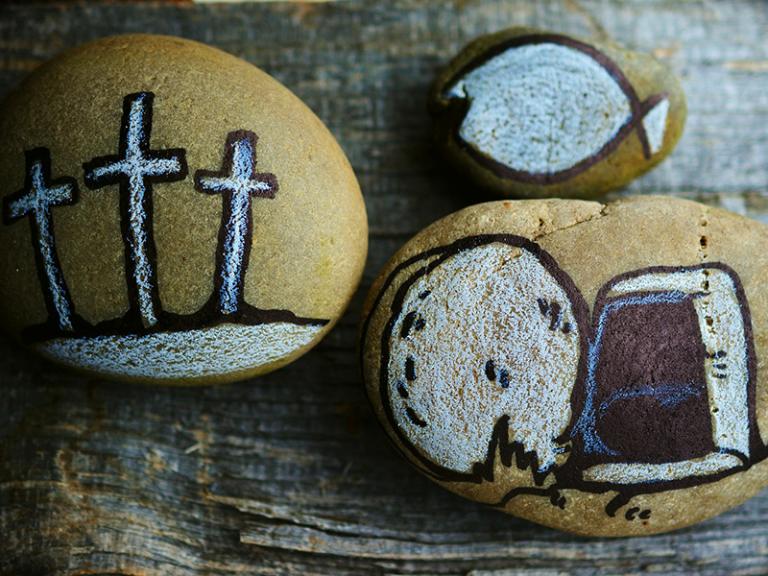
There has been a remarkable outpouring of heartfelt commentary following Rachel’s death from right across the spectrum of Christian groupings. Patheos have collected a list of links commenting on Rachel Held Evans from right across this blogging platform and around the web.
One of those, an anabaptist shared a prayer which Rachel had adapted showing both her great skill in writing and her compassion towards the needy:
God, go with us. Help us to be an honor to the church.
Give us the grace to follow Christ’s word,
to be clear in our task and careful in our speech.
Give us open hands and joyful hearts.
Let Christ be on our lips.
May our lives reflect a love of truth and compassion.
Let no one come to us and go away sad.
May we offer hope to the poor,
and solace to the disheartened.
Let us so walk before God’s people,
that those who follow us might come into his kingdom.
Let us sow loving seeds, words that are quick with life,
that faith may be the harvest in people’s hearts.
In word and in example let your light shine
in the dark like the morning star.
Do not allow the wealth of the world or its enchantment
flatter us into silence as to your truth.
Do not permit the powerful, or judges,
or our dearest friends
to keep us from professing what is right.
Amen.
Rachel the gracious blogger
I miss the early days of blogging when Rachel’s name was familiar to Christians of all persuasions. Back then the echo chambers hadn’t formed so comprehensively as they have now. All too often we talk past those who disagree with us.
Google now has clever algorithms which often seem to serve us articles that it knows we are likely to agree with. Back then Google searches often delivered articles that articulated deeply contrasting views. You expected some results would surprise you with views that challenged your own. Now it often feels like you have to make a real effort if you want to seek out writing from authors from outside your own perspective.
I fear that this tendency towards creating intellectual bunkers is at least as much at fault as fake news is making society and the church more and more polarised. Where is the calm reasoned and respectful dialogue between diametrically opposite views?

In the early days of Christian blogging, at which time Rachel was clearly a leading voice, blogs like hers helped many Christians understand one another’s perspectives. I found myself agreeing with her more often than some others in my tribe would think I should.
In those early days we would read emerging writers from all kinds of different tribes in the Church and we were all the richer for it. Instead of interacting with straw men and women we could read short articles from real life people who followed different theological traditions than our own. And as a result we better understood other people’s positions and through having to explain them properly, we also better understood our own views.
As an early blogger, if you wrote a criticism of someone else, before you knew it that very person might be replying and explaining why you had misunderstood or misrepresented them! More than once Rachel Held Evans helped me understand better different perspectives to those I had learnt as a young evangelical.
Sadly the level of interaction between different schools of thought doesn’t seem to happen as much today. We seem to have largely retreated into only listening to people who we agree with, and we are much the worse for it.
Rachel’s honest struggle
In life Rachel was ruthlessly transparent. Beth More explains what drew so many to Rachel “in an era of gross hypocrisy, she was alarmingly honest.” She was never afraid to share her doubts as well as her criticisms of the Evangelical Church.
Rachel cried out for authenticity and drew huge respect from many who agreed with much of her diagnosis, and admired her clarity of thought, even if they didn’t agree with some aspects of her theology. Rachel described how as a young woman her concerns about the church threatened her faith:
“When I left church at age 29, full of doubt and disillusionment, I wasn’t looking for a better-produced Christianity. I was looking for a truer Christianity, a more authentic Christianity: I didn’t like how gay, lesbian, bisexual and transgender people were being treated by my evangelical faith community. I had questions about science and faith, biblical interpretation and theology. I felt lonely in my doubts. And, contrary to popular belief, the fog machines and light shows at those slick evangelical conferences didn’t make things better for me. They made the whole endeavor feel shallow, forced and fake.”
–Want millennials back in the pews? Stop trying to make church ‘cool.’ Washington Post
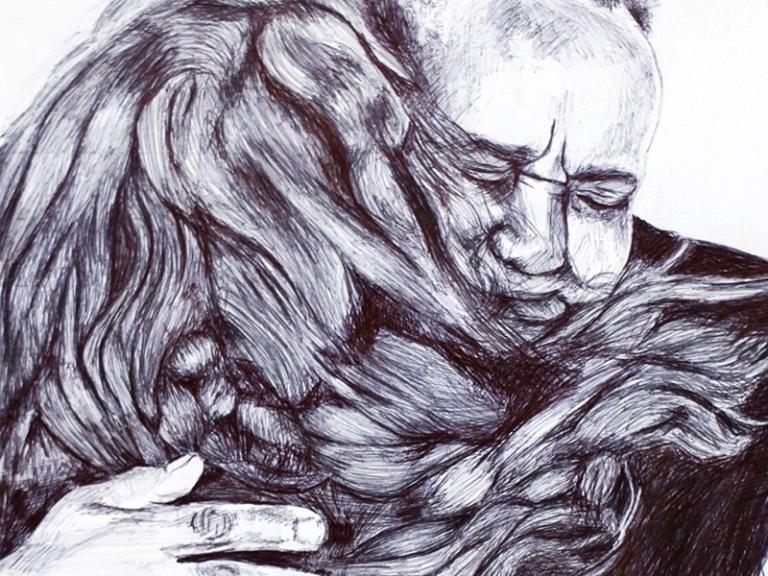
But Rachel didn’t ultimately give up on the church, eventually becoming an episcopalian. She also had a vision for how church could be:
“Imagine if every church became a place where everyone is safe, but no one is comfortable. Imagine if every church became a place where we told one another the truth. We might just create sanctuary”
“The church is God saying: ‘I’m throwing a banquet, and all these mismatched, messed-up people are invited. Here, have some wine.”
“I thought faith would say, ‘I’ll take away the pain and discomfort, but what it ended up saying was, ‘I’ll sit with you in it.”
“But the modern-day church doesn’t like to wander or wait. The modern-day church likes results. Convinced the gospel is a product we’ve got to sell to an increasingly shrinking market, we like our people to function as walking advertisements: happy, put-together, finished—proof that this Jesus stuff WORKS! At its best, such a culture generates pews of Stepford Wife–style robots with painted smiles and programmed moves. At its worst, it creates environments where abuse and corruption get covered up to protect reputations and preserve image. “The world is watching,” Christians like to say, “so let’s be on our best behavior and quickly hide the mess. Let’s throw up some before-and-after shots and roll that flashy footage of our miracle product blanching out every sign of dirt, hiding every sign of disease.” But if the world is watching, we might as well tell the truth. And the truth is, the church doesn’t offer a cure. It doesn’t offer a quick fix. The church offers death and resurrection. The church offers the messy, inconvenient, gut-wrenching, never-ending work of healing and reconciliation. The church offers grace. Anything else we try to peddle is snake oil. It’s not the real thing.”
― Searching for Sunday: Loving, Leaving, and Finding the Church
Rachel and Politics
Rachel has always held a torchlight to the way in which many American Evangelicals have mixed religion and politics. A recent tweet was a fairly typical example of this:
“A conservative friend from South Africa posed an interesting question regarding Trump’s support among evangelicals. We tend to focus on the lies, racism, & sexual predation, but he asked, “How can followers of Jesus support someone famous for boasting about his wealth? ” March 29 2019

She had no time for the way the church has tended to angrily pit itself against culture:
I’ve said it a million times, and I’ll say it again…(though I’m starting to think that no one is listening):
My generation is tired of the culture wars.
We are tired of fighting, tired of vain efforts to advance the Kingdom through politics and power, tired of drawing lines in the sand, tired of being known for what we are against, not what we are for . . .
Because young Christians are ready for peace.
We are ready to lay down our arms.
We are ready to stop waging war and start washing feet.
And if we cannot find that sort of peace within the Church, I fear we will look for it elsewhere.
Rachel the popular theologian

Provocatively and accurately she said
“I have come to regard with some suspicion those who claim that the Bible never troubles them. I can only assume this means they haven’t actually read it.”― A Year of Biblical Womanhood
One thing Rachel did for me was help to break the stereotype that only people who thought similarly to me take the Bible seriously. I never met her but I did enjoy very much recording a discussion with her and Owen Strachan for the Unbelievable? radio show which demonstrated her warmth and openness of heart.
Rachel’s writing had previously inspired me to write on the spectrum of views on gender roles in the church. Reading blogs by writers like Rachel taught me that there was a broader range of views on these issues than I had previously thought . Here is the recording of that radio show::
Rachel the Christian
Partly as a direct result of reading Rachel’s blogs, I became convinced that we need a broad definition of a Christian to include a wider group of people than would be happy to hold the label of Evangelical. I fleshed out these thoughts after for not the first or last time being embarrassed at how some bloggers who I’d thought of as theologically sound had treated her online.
Rachel (as we also saw in a quote earlier in this article) would have had no issues with agreeing with the concept behind the definition of a Christian I ended up penning:
“A Christian is someone who believes in the physical resurrection of Jesus Christ, and lives in light of the implications of that event.” Raised With Christ, Page 20
In complete clarity on this point, Rachel once tweeted,
“I believe the bodily resurrection of Jesus is crucial to Christian doctrine & belief. My pastor (a mainline Protestant) would agree.” Dec 21, 2017

Rachel also recently echoed similar sentiments to those that had struck me at that time and led to my desire to be broader and more inclusive in my understanding of what a Christian is (acknowledging of course that ultimately GOD is the only judge of who is or is not actually saved):
“When you think about it, dismissing all other traditions as faithless is one of the crueler lies of evangelicalism, because it often deprives those of us who fall away or get kicked to the curb of a second chance at church.” April 8 2019
Rachel’s prophetic final blog post
Rachel’s last blog post weeks before announcements began from her husband concerning the sudden sickness that would ultimately take her life concludes in a staggeringly prophetic way. She couldn’t have known she would get sick just a couple of months later, and her blog had become much less frequent and so less crucial to what she did day to day. And yet, if she had planned her own final official words, could she have penned anything better than this?
It strikes me today that the liturgy of Ash Wednesday teaches something that nearly everyone can agree on. Whether you are part of a church or not, whether you believe today or your doubt, whether you are a Christian or an atheist or an agnostic or a so-called “none” (whose faith experiences far transcend the limits of that label) you know this truth deep in your bones: “Remember that you are dust and to dust you will return.”
Death is a part of life.
My prayer for you this season is that you make time to celebrate that reality, and to grieve that reality, and that you will know you are not alone.
Ashes to ashes, dust to dust.
– Rachel Held Evans Lent for the Lamenting
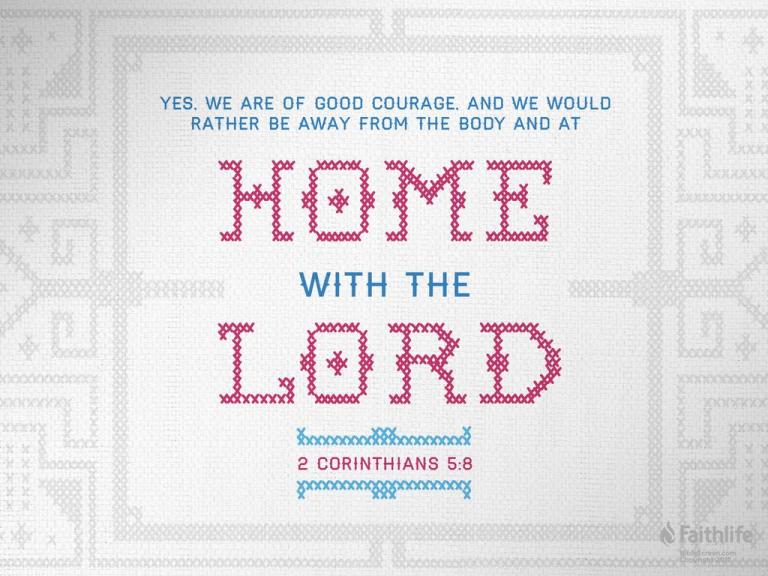
More Articles on Rachel Held Evans
Coming soon: the rest of the series “Jesus Commands”
Jesus said that if you obey him your life will be established on a firm foundation when the storms come.
Adrian hopes God willing to return to blogging more regularly soon.
Follow the link to read all the articles, or subscribe to our newsletter to be notified as they are published.
Complete the form in the top of the right hand column, or below if you are visiting on a mobile device.


